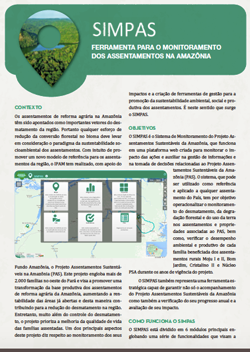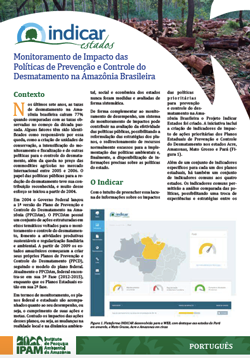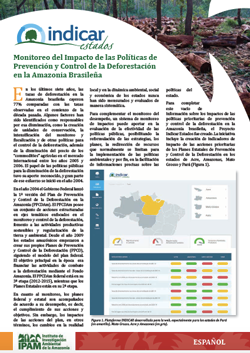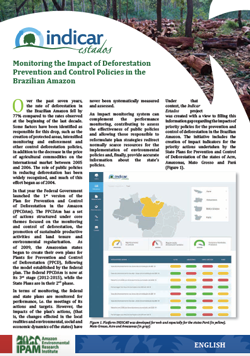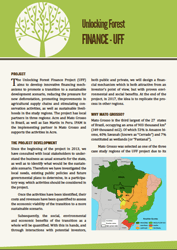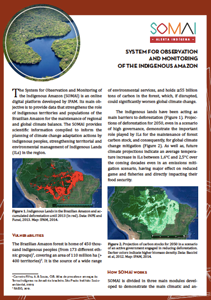Análise do Índice Amazon Puzzle
No âmbito do projeto “NORAD Amazon - Solucionando o quebra-cabeças da Amazônia: sem desmatamento, mais produção e direitos”, há uma das metas no outcome 5 em que buscase a promoção do desenvolvimento de jurisdições sustentáveis na Amazônia, com foco na redução de...
Simpas – Ferramenta para o monitoramento dos assentamentos na Amazônia
O sistema, que pode ser utilizado como referência e aplicado a qualquer assentamento do País, tem por objetivo operacionalizar o monitoramento do desmatamento, da degradação florestal e do uso da terra nos assentamentos e propriedades associadas ao PAS, bem como,...
Indicar Estados – Monitoramento de Impacto das Políticas de Prevenção e Controle do Desmatamento na Amazônia Brasileira
Com o intuito de preencher essa lacuna de informações sobre os impactos das políticas prioritárias para prevenção e controle do desmatamento na Amazônia Brasileira o Projeto Indicar Estados foi criado. A iniciativa inclui a criação de indicadores de impacto de...
Indicar Estados – Monitoreo del Impacto de las Políticas de Prevención y Control de la Deforestación en la Amazonia Brasileña
Para completar este vacío de información sobre los impactos de las políticas prioritarias de prevención y control de la deforestación en la Amazonia brasileña, el Proyecto Indicar Estados fue creado. La iniciativa incluye la creación de indicadores de impacto de...
Indicar Estados – Monitoring the Impact of Deforestation Prevention and Control Policies in the Brazilian Amazon
The Indicar Estados project was created with a view to filling this information gap regarding the impacts of priority policies for the prevention and control of deforestation in the Brazilian Amazon. The initiative includes the creation of impact indicators for the...
Unlocking Forest Finance Project (UFF)
This paper is to introduce all partners involved in the Unlocking Forest Finance project – UFF, the major facts in terms of economics, demographics, natural capital and public policy of Brazil and Mato Grosso region.
SOMAI – System for Observation and Monitoring of the Indigenous Amazon
SOMAI is an online digital platform developed by IPAM. Its main objective is to provide data that strengthens the role of indigenous territories and populations of the Brazilian Amazon for the maintenance of regional and global climate balance.

